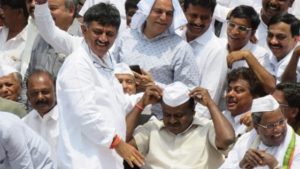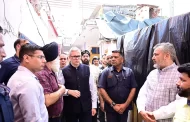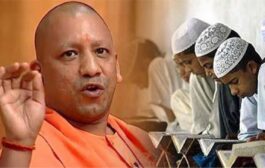As the 2018 Assembly elections in Rajasthan inch closer, major political players in the region — especially the Congress and the Bharatiya Janata Party (BJP) — are making efforts to polish their respective election manifestos. From scanning poll promises in other states to seeking public suggestions via a dedicated phone number, the two major political players in the region are using a large part of their resources to draft their manifestos for the 7 December election.
However, the ruling BJP faces another challenge of reviewing the unfulfilled promises made in its 2013 election manifesto — which drew the public to vote for the party and grant them 162 out of 200 seats in the 2013 Assembly.
Women and child development
As per a report published by Centre for Community Economics and Development Consultants Society (CECOEDECON) in August, one of the major misses of the current state government has been in the area of developing fast track courts for sexual harassment cases. According to the report, the Finance Commission had allotted Rs 214 crore to set up fast track courts in Rajasthan. However, no court has been established yet.
 “The fast track courts were stalled due to legal issues. We had made appointments but there was no recruitment as there are less judges and advocates. So, the judicial panel was incomplete,” said Suman Sharma, chairperson, Rajasthan Women Commission. “We appointed 35,000 lady constables and set up 56 POCSO courts in Rajasthan, which is a big achievement,” the BJP leader added.
“The fast track courts were stalled due to legal issues. We had made appointments but there was no recruitment as there are less judges and advocates. So, the judicial panel was incomplete,” said Suman Sharma, chairperson, Rajasthan Women Commission. “We appointed 35,000 lady constables and set up 56 POCSO courts in Rajasthan, which is a big achievement,” the BJP leader added.
The CECOEDECON report further highlighted that the manifesto stated that each Primary Health Centre (PHC) will have one specialist of ‘women-related-diseases’, but this has not been done in all districts. “Though we put out a vacancy of 5,000 doctors, only 1,300 doctors joined, since we wanted specialists,” Sharma said, while explaining the reason.
Another area where the government fell short of expectations was formulating a gender-sensitive budget. “The budget for 2015-16 allotted 1.2 percent of the total amount for women-related issues, which came down to 1.02 percent in the following year and finally at 1 percent for 2017-18 budget,” said Barkha Mathur, a contributing writer of the report.
Healthcare facilities
The situation in the health sector is also not very appealing. While the Vasundhara Raje-led government had promised to take the state Health Index up to the desired levels as stated in the Millennium Development Goals, it failed to do so in reality. No efforts are being made to take the index to the levels set by the United Nations under Sustainable Development Goals, the report added.
When questioned on the party’s performance in the health sector, the BJP state spokesperson Lakshmikant Bhardwaj had an answer ready. “The basic structure needs to be developed in order to improve the overall Health Index. We have worked on that. The idea is to make primary healthcare facilities available to the public at each panchayat. We have given the patients a monetary cover through Bhamashah Bima Yojana so they don’t have to sell their lands to pay for their treatment,” he said.
In addition to the above mentioned issues, the 2013 manifesto had also said that if voted to power, the BJP would take steps to ensure quick and efficient treatment of those hurt in road accidents. However, nothing has been announced on that front either.
Most importantly, BJP had promised to set up a commission for qualitative improvement of PHCs, Community Health Centres (CHCs), and District Hospitals, and also to rank the hospitals on the basis of overall assessment, awarding the best ones for their performance. The CECOEDECON report revealed that no such commission has been set up so far.
“The overall amount spent on National Health Mission (Rural and Urban) in early years is very low in comparison to the budget allotted for the mission,” the report said.
| Year | Item | Amount (in Rs cr) |
| 2014-15 | Budgeted | 2120.13 |
| Spent | 1204.63 | |
| 2015-16 | Budgeted | 2124.13 |
| Spent | 1724.2 | |
| 2016-17 | Budgeted | 1485.99 |
| Spent | 2966.55 |
Agriculture
According to Rajasthan Economic Review 2017-18, agriculture contributed as much as 24.76 percent of the total GDP of the state in that financial year. However, only 3.5 percent of the overall budget was allocated for the development of this sector. This was less than the previous year’s budget allocation which stood at 4.01 percent.
“We have increased the budget for horticulture because we are focusing on diversity and integrated farming. In order to double farmer income by 2022, we are also diverting farmers from traditional crops to diverse crops. We get extra income from various national schemes like national horticulture mission and other missions. The agriculture allocation in the budget definitely needs to increase,” said Prabhulal Saini, state agriculture minister.
While comparing the 2013 manifesto to the situation on ground, the CECOEDECON report also stated that though BJP had promised loan waivers in Rajasthan and made several related announcements during its term, no concrete plan has been made for the same. “A committee for the same has been set up which is supposed to ensure loan waiving guidelines,” the report added.
When questioned on this, Saini said, “We have transferred the money into their bank accounts. However, the farmers do not understand this and they always want the money in their hands. The loan can only be waived to the account from which it is paid.”
Furthermore, no solid steps have been taken so far to formulate an Act for agriculture and related areas which would compile agriculture, animal husbandry, and other farming areas, as promised.
Along with this, BJP also failed to keep its promise of setting up a Floriculture Department. “We have laid the foundation of two centres of innovative floriculture, one of which is in Mount Abu and the other in Sawai Madhopur. This was sanctioned about two months back. The overall budget for both centres is Rs 20 crore. The only thing left to work on is integrated farming. We are focusing on that,” Saini said, implying they have not ignored the promise completely.
According to the report, other promises which the government failed to deliver upon include promotion of crops requiring less water, fixture of barren lands, and compensation for loss due to animals.
Among the promises that saw realisation is promotion of fruits and vegetables in international market, for which a Global Rajasthan Agritech Meet was organised which led to ‘Smart Farms’ being set up. Health check-ups and vaccinations in schools have happened as promised, efforts are being made to reduce the gap in male-female ratio, several districts have one female police officer posted at the headquarters and more than 50 lakh Bhamashah accounts have been opened. However, the report says that it cannot be confirmed whether the funds have reached the beneficiaries or not.
source: Firstpost.com








































